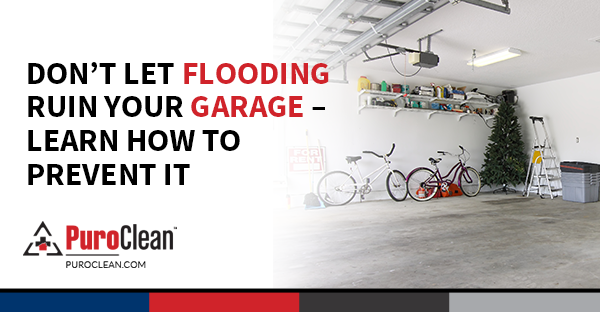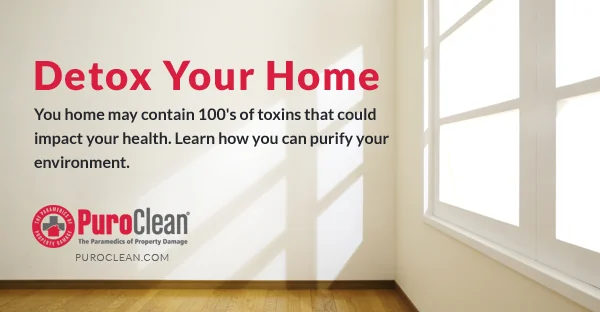Table of Contents
Understanding the causes of water damage is crucial for homeowners to protect their property and prevent costly repairs. From leaky pipes and dishwasher leakage to appliance malfunctions and severe weather impacts, the sources of water damage are varied and often interconnected. Water damage in homes is a pervasive issue, often unnoticed until it causes significant harm.
What are the causes of water damage? Water damage is an unpleasant experience that is capable of causing more damage to your home and properties than your eyes can see. Its negative impacts on properties cannot be overemphasized.
In this article, I will be taking you through different causes of water damage with the purpose of keeping you informed about the necessary things you should know and pay attention to in order to avoid water damage in your house.
Causes Of Water Damage
Dishwasher Leakage | Causes of Water Damage
Dishwashers are used for washing dishes, and washing entails the use of water, so in a situation where your dishwasher is leaking, it can lead to water damage to some of the properties around the dishwasher. This is one of the causes of water damage.
Overflow of Water | Causes of Water Damage
A water tap that is not turned off after use will definitely lead to an overflow of water if the needful is not quickly done. This often happens in the kitchen, toilet, bathroom, and other strategic places in the house where a water tap is fixed.
In most cases, the water taps are not left without being turned off, but they are not just turned off properly enough. As it ever occurred to you that even after turning your water tap off, after a while you could still hear the sound of water dropping little by little?, that is why you need to consciously check through again to confirm the tap is well turned off.
This can lead to damage to carpet, floors, walls, and any other property around the area where the overflow occurred.
People Also Read : 10 Ways to Prevent Water Damage in Your Bathroom
Blocked Drains | Causes of Water Damage
When a drain that allows free flow of water is blocked and left unattended to, it will cause a lot of pressure on the pipe, which may cause a water outbreak and automatically lead to water damage.
Roofing Problems | Causes of Water Damage
Roof maintenance is very important because of the important role it plays in terms of being the first point of defense against rain. A leaking roof serves as a passage for water to flow into your home when there is either a heavy downpour or normal rain. If not fixed, you risk losing some of your properties to water damage.
Condensation | Causes of Water Damage
The source of condensation can be traced to the air conditioner. An air conditioner is known for cooling the house by getting rid of the heat within the area it is fixed in.
The primary focus of every air conditioner is to help with the removal of heat from an enclosed area of the house by giving way and allowing a more comfortable interior environment.
However, if draining the air conditioning unit is not properly done, malfunctions, or starts leaking, it can lead to condensation. The most dangerous aspect of condensation is that it can create a perfect environment and atmosphere for the growth of mold if it penetrates through a ceiling, floor, or wall and is left unattended to.
Damaged/Broken Window | Causes of Water Damage
One of the functions of a window in the house is to primarily create room for cross-ventilation and create some kind of safety. Most importantly, it is also a way of guarding against the inflow of water when it rains.
When a window is broken or damaged, it fails to perform its function of stopping the inflow of water into the house when it rains.
This can be very dangerous, especially during the rainy season. The more it lets water into the house, the more the house is exposed to serious water damage. It is important and advisable to always run a check on your window, especially during the rainy season.
People Also Read : Consequences of Water Damage in Office Buildings
Natural Disaster | Causes of Water Damage
Natural disasters are one of the major causes of water damage. Natural disasters are an unpleasant experience and can be very disastrous, and in most cases, they can be very difficult to control. It can be in the form of hurricanes, heavy storms, or tornadoes. It can cause commercial water damage and huge damage to the structural parts of a house.
A natural disaster requires urgent and immediate commencement of restoration processes because the longer it is left unattended, the more it causes damage to every affected part.
Leaky or Burst Pipes | Causes of Water Damage
The water pipe is the soul and the heart of the water supply to every home. It makes sure water is circulated to every part of the house that is needed and every part it has been channeled to. Its function is very critical, and it can lead to water damage if it bursts. Older buildings, in most cases, have the tendency to have burst pipes because the older the house gets, the older and weaker the pipe in the building gets, putting it at risk of bursting. When a pipe is also frozen, it is capable of bursting.
Blocked Gutters | Causes of Water Damage
Gutters are saddled with the responsibility of water management and also of effectively channeling the flow of water. It plays an important role, especially during the rainy season, as it directs the flow of water to expected or appropriate areas outside your home. When your gutter is blocked, it can cause an overflow of water into your home, especially during a heavy storm. The overflowing water can penetrate into your home, causing water damage and affecting your properties in the process.
To avoid blocked gutters, you should regularly conduct a cleaning exercise.
Extreme Weather | Causes of Water Damage
The rainy season is a period of the year during which every home faces the risk of experiencing water damage. It becomes more dangerous when the weather becomes more extreme. When rain falls repeatedly without stopping for a certain number of days, it can lead to a heavy storm.
A rain that comes with a heavy breeze can damage your window and roof, paving the way for water to flow into your house.
You must ensure that your roof and windows are in good shape to be able to withstand extreme weather and also conduct a check on them after every heavy downpour.
It is important to look out for your gutter too; make sure it is well cleaned and not blocked.
People Also Read : How to Repair Water-Damaged Drywall
Appliances Malfunctions | Causes of Water Damage
Home appliances, particularly those that use or handle water, can significantly contribute to water damage when malfunctioning. Washing machines, dishwashers, water heaters, and refrigerators are common culprits.
The hoses and connections to these appliances can degrade over time, leading to leaks. A ruptured hose on a washing machine or a leaky connection in a dishwasher can release a considerable amount of water, potentially flooding the area and causing damage.
Internal malfunctions within these appliances can also lead to leaks. For example, a faulty valve or a cracked component in a water heater can result in water seepage, affecting the surrounding area.
Faulty HVAC Systems | Causes of Water Damage
HVAC systems can cause water damage if they are not properly maintained. These systems produce condensation during the cooling process, which is typically drained away. However, water can back up and overflow if the drain line is blocked or damaged.
Lack of cleaning and maintenance in HVAC systems can lead to the buildup of condensation, which can then leak and cause damage. This is particularly an issue in systems where the condensate drain line is clogged, or the drip pan is overflowing or damaged.
Prevention & Maintenance Tips of Water Damage
To safeguard your Montgomery residence from the risks of water damage, it’s wise to adopt a proactive approach towards maintenance and prevention. Here’s a tailored guide to help you keep your home in top condition:
Routine Plumbing Check-ups
Ensuring your plumbing system is in good shape is vital. Regularly inspect for any signs of leaks, wear, or corrosion, especially in older installations. Consider updating aged pipes and fixtures to prevent potential failures. In colder regions, insulating your pipes can prevent them from freezing and bursting, thus averting water-related mishaps.
Roof and Gutter Upkeep
Periodic inspections of your roof can prevent unforeseen water damage, particularly after heavy storms. Be on the lookout for any damaged shingles or areas where the roof might be compromised around vents and skylights. Maintaining clean gutters is also key to ensure water is effectively directed away from your home, reducing the chance of roof and structural damage.
Appliance Maintenance
Regularly inspecting appliances that use water can help prevent leaks. Check the connections and hoses of your washing machine, dishwasher, and water heater, replacing any that show signs of wear. Installing leak detection devices can offer an additional layer of protection by alerting you to any issues and automatically shutting off the water supply if a leak is detected.
Drain and Sewage Care
Keeping your drains and sewers clear is essential in preventing backups and water damage. Engage in regular cleaning and consider professional inspections to catch any potential problems early. Be mindful of what you dispose of down the drains to avoid clogs, and use drain covers to catch debris.
HVAC System Checks
Maintain your HVAC system to prevent water damage from condensation leaks. Ensure regular inspections and cleaning, particularly of the drain lines, to keep everything flowing smoothly. Professional servicing can identify and address issues before they escalate, safeguarding your home from potential water damage.
People Also Read : How to Repair Water Damaged Drywall
Foundation Waterproofing
Protecting your home’s foundation from water is crucial. Use waterproofing methods like sealants to keep moisture out. Regularly inspect your foundation for any signs of weakness and address them promptly. Proper landscaping around your home can also direct water away from the foundation, reducing the risk of water seepage.
Weather Preparedness
Take steps to protect your home from extreme weather conditions. Ensure your home has adequate drainage, consider installing flood sensors, and keep your flood prevention systems in check. For homes with basements, sump pumps can provide an effective defense against flooding.
By integrating these preventive and maintenance strategies into your routine, you can significantly lessen the likelihood of water damage in your Montgomery home, ensuring it remains a safe and comfortable haven for years to come.




 PuroClean of Plymouth Meeting
PuroClean of Plymouth Meeting